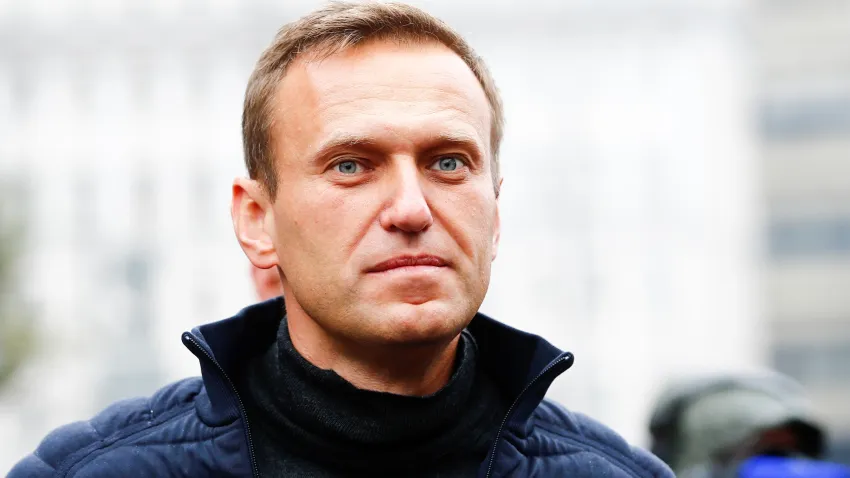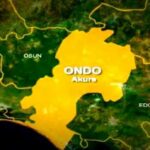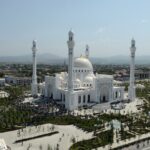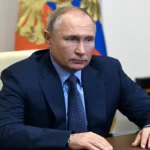More than 40 countries on Monday demanded an independent international investigation into the death of Russian opposition leader Alexei Navalny – and said President Vladimir Putin bore ultimate responsibility.
European Union members, the United States, Britain, Ukraine, Australia, Canada, New Zealand and Norway were among the countries to voice outrage over Navalny’s death at the UN Human Rights Council.
Navalny, 47, who died in an Arctic prison colony, was laid to rest in Moscow on Friday, surrounded by crowds of defiant mourners who chanted his name.
“We are outraged by the death of the Russian opposition politician Alexei Navalny, for which the ultimate responsibility lies with President Putin and the Russian authorities,” EU ambassador Lotte Knudsen told the UN rights body on behalf of 43 countries.
- Abuja warehouse looting beyond hunger – FCT Minister
- African Games: 358 athletes to represent Nigeria – NOC
“Russia must allow an independent and transparent international investigation into circumstances of his sudden death,” which is viewed as “yet another sign of the accelerating and systematic repression in Russia.”
The countries said they were deeply concerned about the “systematic crackdown on civil society”.
They urged Russia to immediately and unconditionally release all political prisoners, human rights defenders, journalists and anti-war activists detained for peacefully exercising their human rights and for opposing Russia’s war in Ukraine.
“We call on the Russian Federation to end this climate of impunity and create a safe environment for political opposition and critical voices,” the statement said.
They also urged Russia to “abolish its oppressive legislation and end political misuse of the judiciary”.
“Russia’s political leadership and authorities must be held to account,” said Knudsen.
“Navalny’s courage, sacrifice and unwavering commitment to the cause of justice, freedom and democracy will never be forgotten.”
‘Trends worsening’
The death of Putin’s staunchest opponent was announced on February 16 as the Kremlin leader campaigned to secure a new six-year term in an election in mid-March where he will face no real competition.
For his part, UN human rights chief Volker Turk said Navalny’s death “adds to my serious concerns about his persecution”.
In the build-up to this month’s elections, the Russian authorities had further intensified their repression of dissenting voices, Turk said Monday in his global update to the Human Rights Council.
Several candidates have been prevented from running, due to alleged administrative irregularities, he noted.
“Since the onset of Russia’s war on Ukraine, thousands of politicians, journalists, human rights defenders, lawyers and people who have simply spoken their minds on social media have faced administrative and criminal charges, and this trend appears to have worsened in recent months,” he said.
He called for a review of all such cases and for “an immediate end to the repression of independent voices”.
“The future of the country depends on an open space.”
Responding to Turk, Russia’s representative in the chamber said the UN Human Rights Office was producing “anti-Russian reports” which “reproduced fabrications from Ukraine and the West”.
“There is no shortage of openly false material that targets our country. This looks particularly cynical,” he said.
He called on Turk and his office “to start giving an objective assessment to the situation in the world, in order not to lose the remaining trust that it has”.

 Join Daily Trust WhatsApp Community For Quick Access To News and Happenings Around You.
Join Daily Trust WhatsApp Community For Quick Access To News and Happenings Around You.


